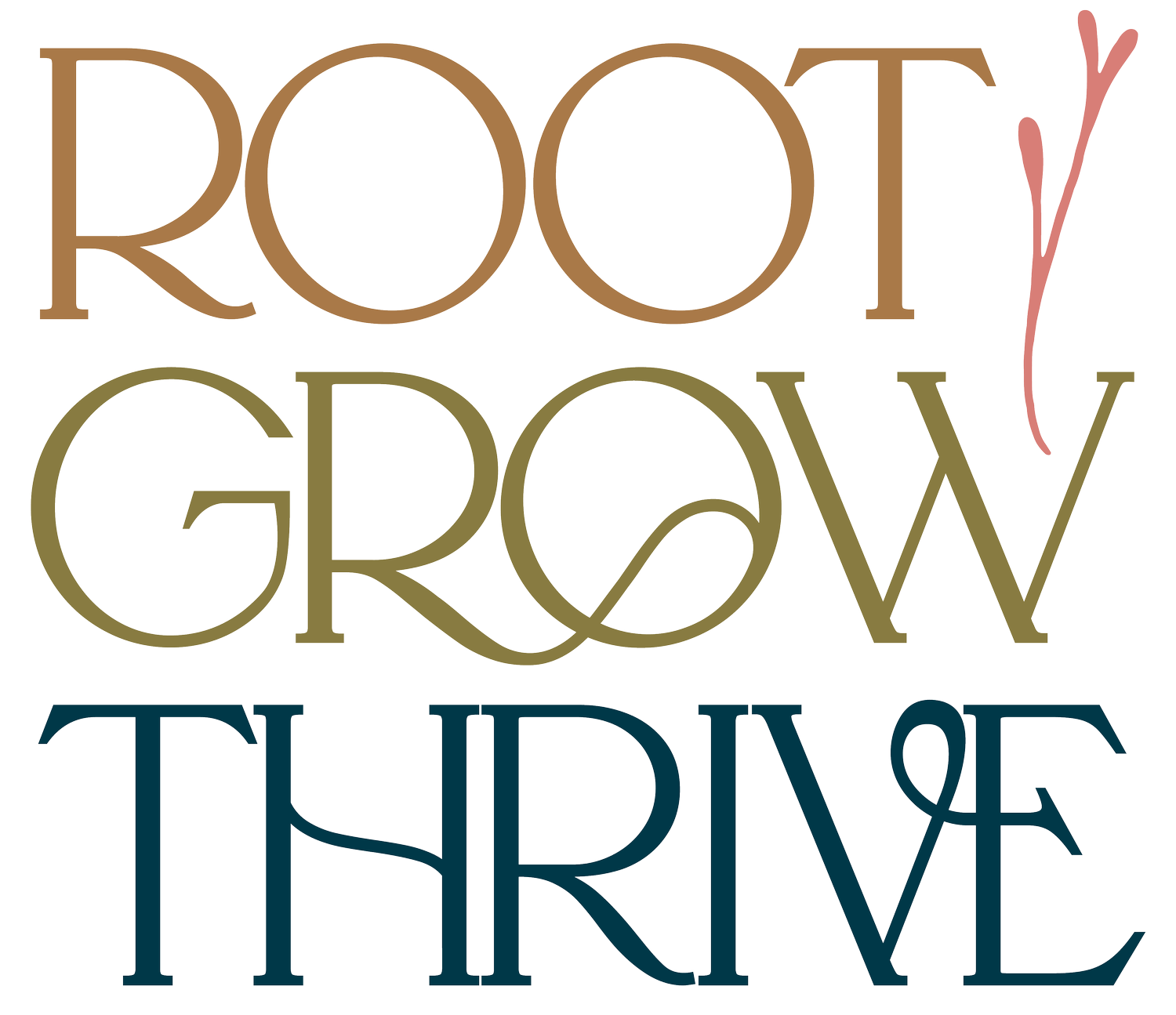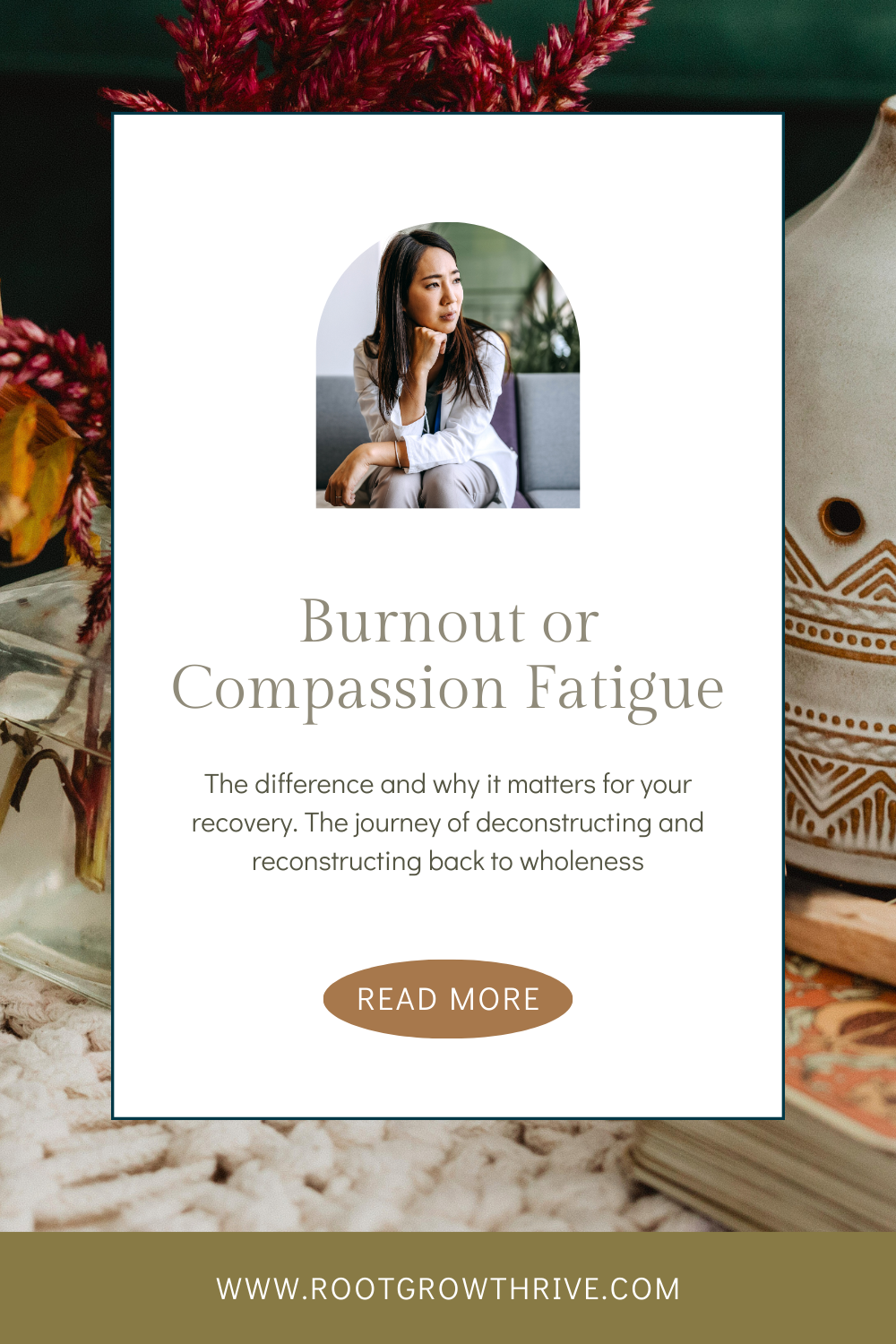Burnout or Compassion Fatigue
When I had to quit my job and take time off, I was so clouded in my head as to why that I couldn't put my finger on it--I just knew that I couldn't keep working.
So when I started to do the work to deconstruct what got me to that place, I realized that I had confused compassion fatigue and burnout.
What is the difference?
Compassion Fatigue
Compassion fatigue is the result of giving of oneself without adequate rest, recovery and renewal. It is a type of depleted feeling, both emotional and physical that is related to regularly caring for others. Compassion fatigue results in feeling less compassionate and having a lack of empathy for others. High levels of compassion fatigue is related to secondary traumatic stress. This is the result of caregiving for those who are in traumatic responses and is especially prevalent in first responders. Secondary traumatic stress is much like secondary PTSD--having symptoms of trauma due to witnessing others' traumatic responses.
Burnout
Burnout, on the other hand, is a complex condition that is related to mind-body-spirit, cultural and systemic issues. Burnout is less about what you do or don't do, but rather who and what systems you work in and with. When we don't feel supported or don't have adequate community to sustain our work, we are at risk of burnout.
There are three important parts to emotional burnout:
depersonalization-- or feeling more insensitive to other's plights or even feeling callus towards people
emotional exhaustion--feeling less enthusiastic about your job or ministry
reduced sense of purpose--feeling like you can't remember why you went into your vocation or job in the first place.
This is particularly painful for those in call-based vocations, who are connected to the core passion of their giving.
Furthermore, burnout often contains compassion fatigue and moral injury, as well as secondary stress and trauma as well. Burnout is a much wider lens on the condition of struggle.
Compassion fatigue often is an early sign of burnout. Humans are highly attuned, interdependent, empathetic creatures. We have to be acculturated –often traumatized in the process–away from these instincts for compassion fatigue to arise. When we are chronically exhausted from giving of our energy to care, we withdraw, causing more problems such as addiction and social isolation.
Just like with burnout, I know compassion fatigue from experience. As a young mom with three kids, there were times I felt completely spent. There was a once phase when my child was crying from 3-5am every night, and I still had to get up with the other two in the morning. I remember detaching from emotion of it all, and becoming a near ghost of myself during that time. I had difficulty connecting to my infant, due to my exhaustion, and instead was more irritated at my baby, not feeling loving. This was compassion fatigue. I knew enough to step away and access my resources, and it resolved on its own, most obviously when my child began to sleep again and I was back to my own rest.
Why wasn’t it burnout? I had support–I had access to childcare if I needed it; I was able to go to the store and not worry about whether I had enough money for my children to eat, I could get a nap in here and there because I had a supportive partner, I was able-bodied and had access to my baby easily without barriers, I had hope because I saw other moms cope with these things, etc, etc.
Many parents experience compassion fatigue, especially when they have challenging situations with children who are highly sensitive, have health problems, are colicky as infants, etc. While parents may feel compassion fatigue, when they are not given the time, given the financial support, and offered the emotional sustainability to step away from their parenting role and tend to their own needs–they become burned out. While they have difficulty connecting to their child, because it is systemically-based in the oppressive practice of lack of resourcing, they are actually burned out.
While compassion fatigue often is passing, burnout is usually chronic without addressing the core causes. Phases come and go in our caregiving roles, and things lighten up, and we are able to take steps away to breathe and renew. With burnout, though, feeling exhausted and disconnected is part of the systemic inequities and oppressions involved, and so burnout without multi-factorial care is often persistent and repeats itself over a career or lifetime.
Burnout is a psycho-spiritual condition. We get a nourished sense of connection when we are given opportunity to do the work and live the lives we feel we are meant to live. When our agency and autonomy is taken away, it dehumanizes us. We are disconnected from our internal sensors highly sensitive to power differentials and self-protection. Burnout
Knowing the Difference Matters
We can feel compassion fatigue without burnout, and we can feel burned out without compassion fatigue. There are similar ways to attend to both, but in general while compassion fatigue is specialized to caregiving roles, burnout often affects people in all types of work. it is important to know the difference if you are seeking therapy so that the source of your difficulties can be addressed and you can move forward towards your resiliency and recovery with confidence.

